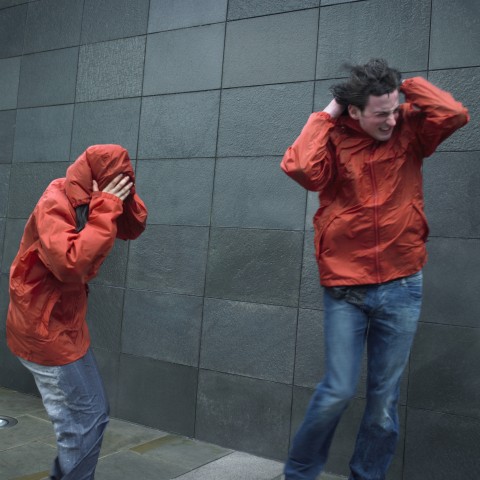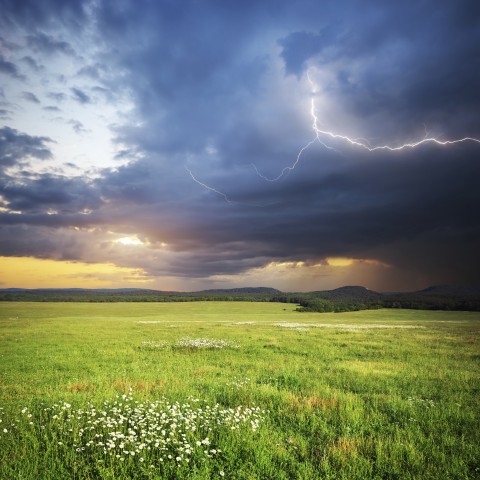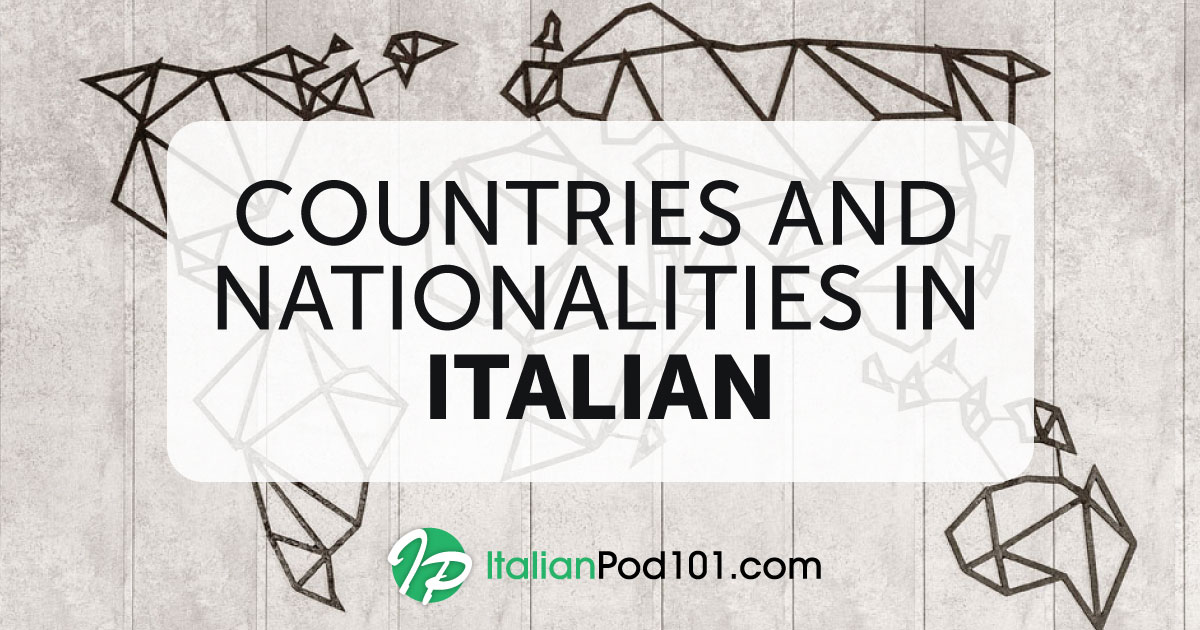Bella giornata, vero? (Nice day, isn’t it?)
How many times have you heard somebody start a conversation this way? Talking about the weather is, in every language, the typical topic that friends, acquaintances, and even perfect strangers often choose as a conversation starter.
In Italian, it’s no different. Talking about the weather is the perfect way per rompere il ghiaccio (to break the ice). This is why it’s so important to have all the vocabulary tools for talking about the weather (in Rome, Italy, or elsewhere).
In this article, you’ll learn practical Italian weather vocabulary, how to describe weather in Italian, the various weather conditions in Italian provinces, and how to talk about weather in Itallian like a native! Let’s get started.
Table of Contents
- Italian Weather Words
- Talking about Temperature and Seasons
- The Most Common Sentence Pattern to Talk about the Weather in Italian
- The Most Common Ways of Discussing the Weather in Italian
- Popular Sayings about the Weather
- How ItalianPod101 Can Help You Master Italian Conversation
1. Italian Weather Words
First of all, to talk about weather, Italian vocabulary words that relate to the local climate conditions are essential. Italy has a moderate clima mediterraneo (Mediterranean climate), so you shouldn’t expect any extreme weather conditions. But given its peculiar geography, the weather in Italy can be quite varied, depending on where you are. Still, no need to know words such as tifoni, uragani, or tornado (typhoons, hurricanes, or tornadoes).
Here’s basic weather vocab Italians use often to talk about the weather conditions you’re likely to encounter when traveling in Italy. One thing that you should definitely pay attention to is the specific gender of the word (most are feminine, by the way).
| Il sole (m) | “the sun” | Il sole in agosto è troppo forte. | “The sun is too strong in August.” |
| il cielo (m) | “the sky” | Il cielo è sereno. | “The sky is clear.” |
| le nuvole (f) | “the clouds” | Vedo molte nuvole all’orizzonte. | “I see many clouds on the horizon.” |
| la pioggia (f) | “the rain” | La pioggia ha ripulito l’aria. | “The rain cleaned the air.” |
| il temporale (m) | “the storm” | È il tipico temporale estivo. | “It’s the typical summer storm.” |
| la neve (f) | “the snow” | Quest’anno c’è poca neve. | “This year there is little snow.” |
| la nevicata (f) | “the snowstorm” | È la nevicata del secolo. | “It is the snowfall of the century.” |
| il vento (m) | “the wind” | Il vento soffia forte. | “The wind is blowing hard.” |
| la nebbia (f) | “the fog” | Con questa nebbia non si vede niente! | “You can see nothing with this fog!” |
| la foschia (f) | “the mist” | La foschia arriva dal mare. | “The mist comes in from the sea.” |
| la grandine (f) | “the hail” | La grandine ha danneggiato i vigneti. | “Hail damaged the vineyards.” |
| la grandinata (f) | “the hailstorm” | Nessuno aveva previsto questa grandinata. | “No one had foreseen this hailstorm.” |
| i tuoni (m) | “the thunder” | I tuoni mi fanno paura. | “Thunder scares me.” |
| i fulmini (m) | “lightning” | I fulmini illuminavano la notte. | “The lightning lit up the night.” |
This list provides you with the basic weather Italian words you’ll need. Do you want more? Have some fun with an ItalianPod101 video about weather words.
2. Talking about Temperature and Seasons
La neve? Solo al nord (“Snow? Just in the north”)
If you’ve ever wondered “What is the weather like in Italy in December or May?”, then first of all, you should consider where you’re going to be (north, south, by the sea, in the mountains…) as weather in Italian regions varies greatly: the weather in Milan, Naples, and Florence are nothing alike.
And seasons lately aren’t as defined as they used to be… But still, here are some phrases for types of weather in Italian regions based on season. This should give you a good base to carry out the perfect conversation about seasons and weather in Italian:
1- Spring Weather in Italian
La primavera (spring) is that fantastic season when the weather starts getting warmer and all the flowers are in bloom, although it can still be rainy. No wonder it’s inspired many musicians and painters!
Here’s a phrase to talk about warm weather in Italian:
In primavera le giornate sono tiepide.
“In the spring, days are warmer.”
2- Summer Weather in Italian
L’estate (summer) is generally quite warm. The Italian weather in summer can be humid or dry, depending on the city. It rarely rains, so it’s the best time of the year to enjoy a trip to Italy. Here are some suggestions of things to do in Italy when the weather is nice and hot.
Here’s a phrase to talk about hot weather in Italian:
Le estati sono secche, ma attenti agli acquazzoni!
“Summers are dry, but watch out for downpours!”
3- Autumn Weather in Italian
L’autunno (autumn) is when it starts getting colder and rainy, and children go back to school.
Here’s a sentence to describe the autumn weather:
In autunno comincia a piovere e cadono le foglie.
“In the fall, it starts raining and leaves are falling.”
4- Winter Weather in Italian
L’inverno (winter) is cold and rainy. This may be when you experience the most wet weather in Italian regions. However, when it comes to Italian weather in winter, it rarely snows in the south or at sea level.
Here’s a phrase to talk about cold weather in Italian:
In inverno nevica al nord e sulle montagne.
“During winter, it snows in the north and in the mountains.”
3. The Most Common Sentence Pattern to Talk about the Weather in Italian
Now it’s time to go over some common weather phrases Italian, and useful sentence patterns.
Che tempo fa? Che tempo c’è? (What is the weather like?) These two expressions are the most common way of asking about the weather in Italian, and they both mean the same thing.
Notice how, to talk about the weather in general, you can either use fa (literally “it makes” when translated) or c’è (there is).
| Fa caldo / C’è caldo | “It’s hot” |
| Fa freddo / C’è freddo | “It’s cold” |
| Fa bello / C’è bel tempo | “It’s nice” |
| Fa brutto / C’è brutto tempo | “It’s bad weather” |
You can use this same pattern to describe more extreme weather in Italian with these common colloquialisms:
Oggi fa un freddo cane!
Literally: “Today it’s dog cold.”
Meaning: “It’s extremely cold.”
In Agosto c’è un caldo da morire!
Literally: “In August, it’s hot to die.”
Meaning: “It’s terribly hot.”
In some situations, weather adjectives in Italian use c’è (there is), but they don’t work with fa (it makes). These are:
- C’è vento (It’s windy)
Chiudiamo la finestra, c’è troppo vento!
“Let’s close the window, it’s too windy!” - C’è nebbia (It’s foggy)
Quando c’è nebbia in Val Padana, non si vede niente.
“When it’s foggy in Val Padana, you can’t see anything.” - C’è foschia (It’s misty)
Quando c’è foschia non si vede l’orizzonte.
“When it’s misty, you can’t see the horizon.”
If you’re talking instead about weather events such as rain, snow, and hail, you just need to put the verb in the impersonal form (3rd person singular):
- Piove (It rains)
Se piove prendo l’ombrello.
“If it rains I’ll take the umbrella.” - Nevica (It snows)
I bambini escono a giocare quando nevica.
“Kids go out and play when it snows.” - Grandina (It hails)
Se grandina, si rovina il raccolto.
“If it hails, the harvest will be ruined.”
Other weather-related events are expressed in Italian with the impersonal si, where si means “everyone,” or “one”:
-
– si soffoca (one suffocates), which translates to “It’s so hot, you can barely breath.”
– si gela (one freezes), which translates to “It is freezing.”
– si muore di freddo (one dies from the cold weather), which translates to “It’s terribly cold.”
Italians aren’t very fixated on registering temperatures, so the conversation rarely focuses on the exact degrees on any particular day. But if you do want to learn about telling the weather in Italian based on temperature, you use the verb c’è/ci sono (there is/there are).
The most common mention of temperature in Italy is when it’s very hot (and people talk of a generic 40º C) or very cold, and people start saying that the temperature va sotto zero (goes below zero).
Remember that in Italy, temperatures are registered in Celsius and not Fahrenheit.
-
– Che caldo! Ci saranno 40 gradi…
“It’s so hot! Must be 40º…”
– Fa un freddo cane! Sicuramente il termometro va sotto zero.
“It’s freezing. Surely the thermometer goes below zero.”
– Ci sono 20 gradi sotto zero.
“It’s 20 below zero.”
4. The Most Common Ways of Discussing the Weather in Italian
Talking about the weather is not only a great conversation starter, or an easy way to fill uncomfortable silences, but it’s also the perfect occasion for complaining, giving motherly recommendations, and worrying about global climate changes…
No matter the season, Italian moms can’t help but worry about what their children are wearing and whether it’s appropriate for the season:
-
– Fa freddo, vestiti pesante.
“It’s cold, dress up warmly.”
– Hai messo la canottiera?
“Did you wear an undershirt?”
– Hai messo le calze di lana?
“Did you wear woolen socks?”
Another typical conversation when talking about weather in Italian often revolves around climate change and how the weather is very different than it was a few generations ago. In this respect, the typical conversation opener, especially among older people, is:
Non ci sono più le mezze stagioni.
Literally: “There are no more mid-seasons.”
Meaning: “Autumn and spring aren’t as mild as they used to be.”
Quando ero piccolo, in inverno nevicava tutti gli anni.
“When I was a kid, in the winter it used to snow every year.”
From these comments, you can easily get involved in a broader conversation (or dispute) about cambiamenti climatici e riscaldamento globale (climate change and global warming).
Especially if you’re on the phone or on a long-distance chat, here’s a very common opening line to get information about the weather in the other person’s country: Che tempo fa da te? (What’s the weather like over there?)
And then each person goes about describing weather in Italian respective to where they are using some of the weather expressions Italian we went over earlier. Then they may continue complaining about climate change or about how you never know what to wear…!
And finally, of course, the most popular weather conversation of all is to get the weather forecast.
-
– Che tempo è previsto per domani?
“What is the forecast for tomorrow?”
– Quali sono le previsioni del tempo per il fine settimana?
“What is the forecast for the weekend?”
Notice how you can say it in two ways (tempo previsto / previsioni del tempo), which both mean “weather forecast.” The forecast is particularly important if you’re planning an excursion or going out with friends. Especially if you need to decide in advance what you’re going to wear, or what you’re going to bring on your trip! And you know, as Italians, style and clothes are always important. Even during un acquazzone (a downpour)! You can practice hearing the weather forecasts at your own pace right here!
5. Popular Sayings about the Weather
In Italian economy and culture, agriculture has always been very important, and people used to depend on the weather to ensure their livelihood. Depending on the weather in Italian regions, people could assume the best or worst for the year. So it’s no surprise that there are a lot of popular sayings related to climate events:
In marzo, vedi il sole e prendi l’ombrello (“In March, see the sun and take the umbrella”)
-
– Marzo pazzo pazzerello, vedo il sole prendo l’ombrello.
“March is a little crazy, see the sun and take the umbrella.”
Meaning: The month of March has unpredictable weather.
– Piove sempre sul bagnato.
“It always rains on the wet ground.”
This is the Italian counterpart of the English phrase “It never rains, but it pours.”
– Piove a catinelle.
“It’s raining buckets,” or “It’s raining cats and dogs.”
Meaning: It’s raining an awful lot!
– Tempo da lupi
“Wolf weather”
Meaning: The weather is so bad that only wild wolves are around.
– Fare il bello e il cattivo tempo.
“To decide the beautiful and the bad weather.”
It corresponds to the English phrase “to rule the roost.”
– Rosso di sera, bel tempo si spera.
“Red at night, good weather awaits.”
It’s popular knowledge that if the sky is red in the evening, it means that the weather is going to be good the next day.
– Rosso di mattina, il mal tempo si avvicina.
“Red in the morning, bad weather is getting near.”
The second part of the popular rhyme says that if the sky is red in the morning, the weather is going to be bad.
– Piove, governo ladro!
“It rains, blame the government.”
This popular exclamation, that might even have originated in Roman times, is an ironic way to blame the government for everything. Even for rain!
Il solleone (“Scorching sun”)
And there are different words to describe specific instances of the same event:
-
– Piove (It rains) vs. Pioviggina (It rains very lightly)
– This one’s great for talking about drizzly weather in Italian!
– Pioggia (rain) vs. Pioggerella/Pioggerellina (A very light rain)
– Sole (sun) vs. Solleone (Literally, “sun lion,” meaning “scorching sun” when translated.)
– Freddo (cold) vs. Freddino (Just a little cold)
– Caldo (hot) vs. Calduccio (A nice and cozy warmth)
6. How ItalianPod101 Can Help You Master Italian Conversation
Congratulations! Now you’ve learned expressions to talk about the weather in Italian and you’re ready for any conversation, planning a short trip, or to deciding what’s most appropriate to wear. Hopefully you’re prepared whatever the weather in Italian regions you go to. But don’t stop now! It’s time to have more fun and dive deeper into ItalianPod101.com.
With all the hard work you’re putting into your language-learning journey, don’t be surprised if you’re speaking fluently in no time! Best wishes!
Che tempo fa? (What’s the weather like?) Practice your weather descriptions in Italian and let us know what the weather is like in your country!



















